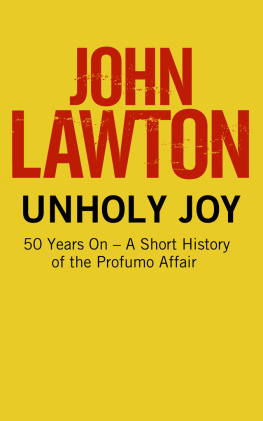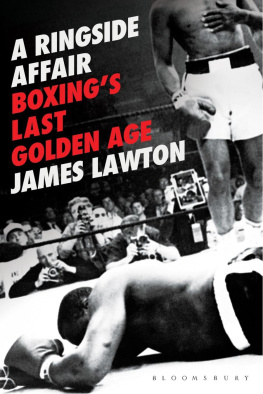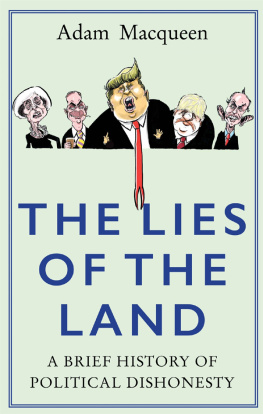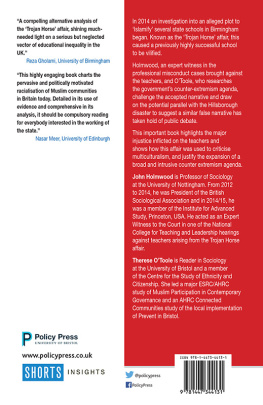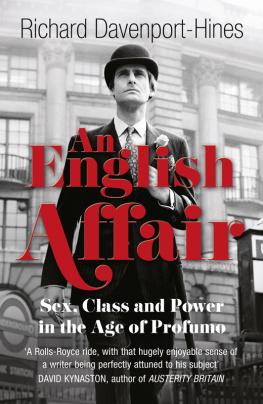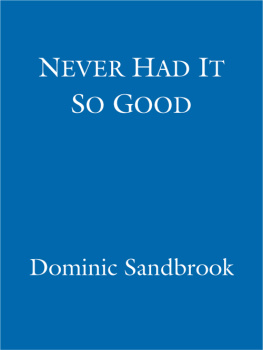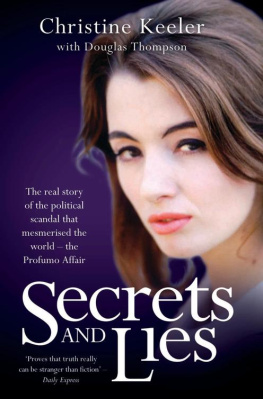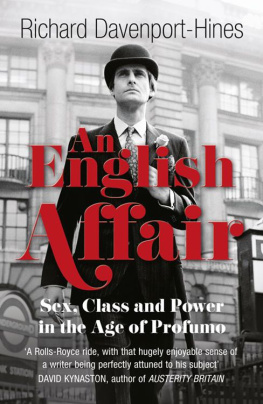
First published in hardback in Great Britain in 1992 by
Hodder & Stoughton, an imprint of Hachette Livre
This E-book edition published in Great Britain in 2013 by
Grove Press UK, an imprint of Grove/Atlantic Inc.
Copyright John Lawton, 1992
The moral right of John Lawton to be identified as the author of this work has been asserted by him in accordance with the Copyright, Designs and Patents Act of 1988.
All rights reserved. No part of this publication may be reproduced, stored in a retrieval system, or transmitted in any form or by any means, electronic, mechanical, photocopying, recording, or otherwise, without the prior permission of both the copyright owner and the above publisher of the book.
Every effort has been made to trace or contact all copyright-holders. The publishers will be pleased to make good any omissions or rectify any mistakes brought to their attention at the earliest opportunity.
1 3 5 7 9 8 6 4 2
A CIP record for this book is available from the British Library.
E-book ISBN 978 1 61185 976 8
Grove Press
Ormond House
26-27 Boswell Street
London
WC1N 3JZ
www.groveatlantic.com
UNHOLY JOY
I doubt Im alone in arguing that the 1930s lasted a lifetime prolonged by the austerity of the war and immediate post-war years it is more culturally sound to defy the calendar and say they they finally ran their course in 1963. In 1963 Britain began to shrug off one way of life and adopt another. Shrug is an understatement the process was loud and physical. Few things louder than the Beatles, fewer still more physical than the Profumo affair.
The world prior 1963 is not a world we lost, its one we threw away. This piece is about that casting off but equally its about the resistance to the process as much about the moral backlash as the sexual liberation.
The title is taken from a phrase coined by Bernard Levin. I was fortunate enough to work with Bernard some twenty years after these events. I dont think he cared much for reminiscence, but kindly agreed to an interview quite possibly the last he ever gave on the subject of 1963.
With a roar of unholy joy, the deprived flung themselves on the sated.
Bernard Levin
Even Suez was clean about war and politics. This was all dirt.
Harold Macmillan
There is an affair in the tides of men. At 11 oclock on the evening of March 21st, towards the end of the fruitless debate on Foster and Mulholland, Colonel George Wigg, MP for Dudley, took it at the flood:
There is not an Hon. Member in the House, nor a journalist in the press gallery who in the last few days has not heard rumour upon rumour involving a member of the government front bench. The press has got as near as it can it has shown itself willing to wound but afraid to strike. This all comes about because of the Vassall tribunal. In actual fact, these great press lords, these men who control great instruments of public opinion and power, do not have the guts to discharge the duty that they are now claiming for themselves.
Hansard is not given to including stage directions, merely the nods and shakes of assent and dissent, but you can almost hear the deep intake of breath and the performer girding his loins.
That being the case, I rightly use the privilege of the House of Commons that is what it is given to me for to ask the Home Secretary, who is the senior member of the Government on the Treasury Bench now, to go to the Dispatch Box he knows the rumour to which I refer relates to Miss Christine Keeler and Miss Davies and a shooting by a West Indian and, on behalf of the Government, categorically deny the truth of these rumours. On the other hand if there is anything in them, I urge him to ask the Prime Minister to do what was not done in the Vassall case set up a Select Committee so that these things can be dissipated, and the honour of the Minister concerned freed from the imputations and innuendoes that are being spread at the present time.
Rumour upon rumour was more than a familiar turn of clich. It was an accurate description of the state of political gossip in the spring of 1963. Rumour had it, and had had it so for some nine months, that War Minister Jack Profumo had had an affair with the spectacularly beautiful, nineteen-year-old Christine Keeler, model and former nightclub showgirl. The rumour upon this rumour was that Christine had failed to appear, on March 14th, at the trial of John Edgecombe (who had discharged a revolver at her and Mandy Rice-Davies on December 12th) because someone, quite possibly the rumour went someone in high or very high places, had spirited Christine away in order to prevent her giving evidence that might prove embarrassing. In publicly citing the newer rumour, Wigg was also invoking the older, and with it what was known by every journalist in London, that Christine was also claiming to have had an affair with the Soviet naval attach, Yevgeny Ivanov, at the same time. Wigg had called the press cowards for not printing what they knew to be the truth, and had set off a line of enquiry that would lead to two parliamentary debates, countless off-cabinet (as in off-Broadway) meetings, eventually necessitate an investigation by Lord Dilhorne, a report by Lord Denning and, arguably, bring down both the Prime Minister and the government. It was a tragedy for many players, but to find all three protagonists in this first act together you have to go back to July 1961.
Since the mid-fifties, society osteopath Stephen Ward had rented a weekend cottage on the Cliveden estate of his patient Viscount Astor. As befits an estate like Cliveden, cottage is an understatement to describe the large Tyrolean-style villa, nestling in the beech trees on the banks of the Thames. Spring Cottage was roomy enough for Ward to have house guests and weekend parties, and on the weekend of July 8th9th 1961 he had three or four guests, among whom was Christine Keeler who also shared his London flat. At the same time, in the big house a mile away, Astor was entertaining more than thirty people including Lord Mountbatten, Nubar Gulbenkian, President Ayub Khan of Pakistan and Jack Profumo and his wife, the forties film star Valerie Hobson. At about ten-thirty on the Saturday evening, after a hot summers day, Ward and Christine drove up to the big house for a floodlit swim in Astors pool. Christine, either because Ward had dared her or because her borrowed costume was too big, was swimming naked as Astors guests began to drift out of the big house into the garden at the end of dinner. As Profumo and Astor appeared, Christine grabbed a towel and reached for her costume, but Ward tossed it into the bushes, leaving her wet and dripping and scarcely covered. There was now one of those wonderfully ludicrous moments as upper-class manners coped flawlessly with the unexpected and the absurd, and Astor introduced his disparate guests to one another the almost naked Christine shook hands with the dinner-jacketed Minister for War and his wife. (Ward and Profumo had met before Ward had sketched the War Minister for the Illustrated London News.) Depending on which published account you read, there was also a scene from Carry on Minister, between appearance and introduction, as Astor and Profumo chased Christine round the pool.
At the end of the evening, Astor invited Ward and his guests to a Sunday picnic lunch by the pool, and Christine set off back to London to guide more of Wards friends down for the Sunday one of them was Yevgeny Ivanov, whom both Ward and Christine thought was a spy, and based on the logic of who in any embassy isnt? it seems only common sense to assume that he was. So, at lunchtime on the Sunday, a Soviet Spy and the British War Minister were to be found racing each other the length of the pool, and competing for the attention of a nineteen-year-old girl, watched by a member of the House of Lords and the President of Pakistan. Spy in clover? Minister in daydream? Reputation in peril? Security at risk?

